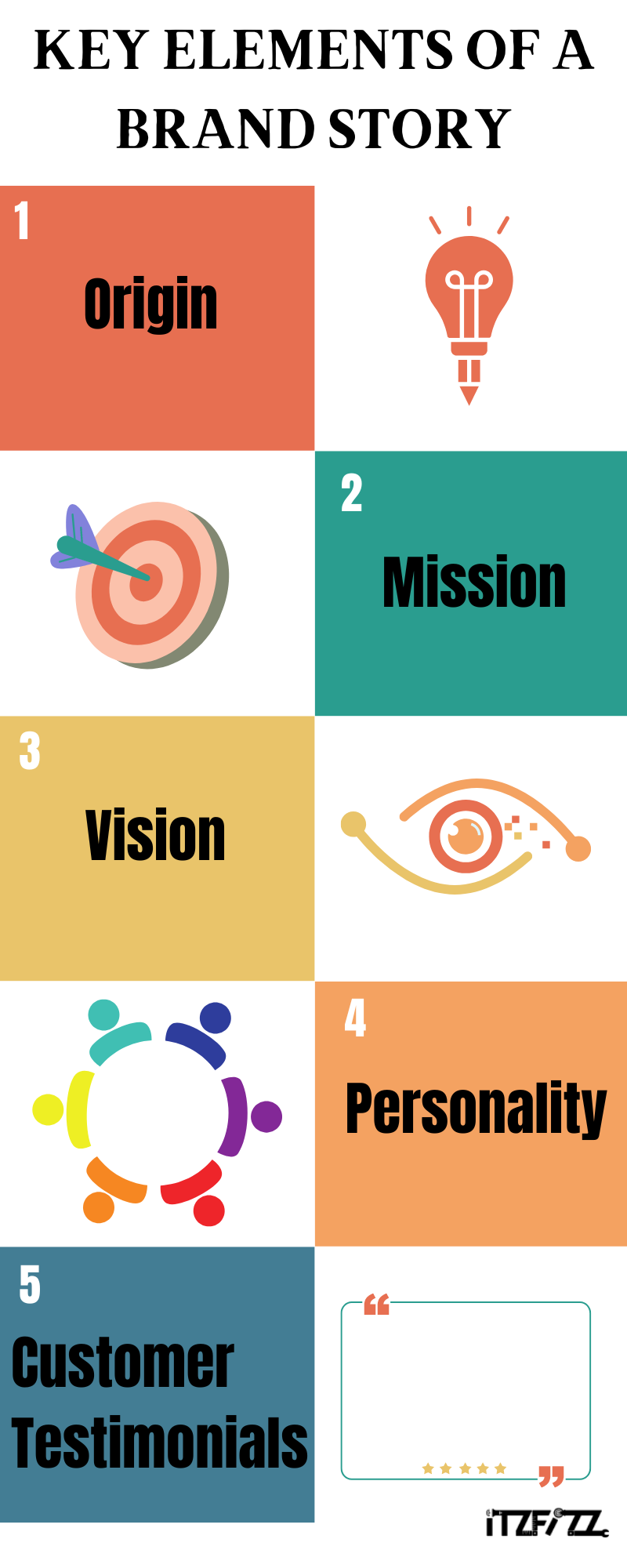Table of Contents
- Introduction
- The Evolution from Traditional to Modern Marketing
- Understanding Your Audience in Modern Marketing
- Crafting Your Brand Story
- Modern Marketing Strategies
- Modern Marketing Strategies and Tactics
- Modern-Day Marketing Strategies
- Modern Marketing Mission and Value Proposition
- Building a Business Case for Modern Marketing
- Content Audit and Performance Analysis
- High-Level Editorial Plan and Content Calendar
- PDF Resources and Guide
- Conclusion
- Frequently Asked Questions
Introduction
In the ever-evolving landscape of business, the strategies guiding digital marketing efforts are continually adapting to meet the dynamic needs of the market. Modern marketing strategies go beyond innovative campaigns; they leverage the full potential of a business to enhance customer experiences and foster growth.
As we delve deeper into this comprehensive guide, we will unravel the transformative journey from traditional to modern marketing, emphasizing a unified, ROI-driven, and customer-centric approach. We will explore the tools and strategies that are indispensable in today’s competitive landscape, helping businesses not only survive but thrive in the modern market.
This guide aims to be a beacon for marketers, providing insights and strategies that are grounded in the latest trends and proven methodologies. Whether you are a seasoned marketer looking to update your strategies or a newcomer eager to make a mark, this guide offers something for everyone.
Join us as we navigate the intricate world of modern marketing, offering a roadmap to success in the digital age.
The Evolution from Traditional to Modern Marketing
The transition from traditional to modern marketing is more than just a change; it’s a transformative journey that has redefined the very foundations of marketing. In the past, marketing strategies were predominantly product-focused, utilizing one-way communication channels such as print media, TV, and radio. The approach was largely linear, with limited scope for engagement and personalization.
Modern marketing, on the other hand, has ushered in an era of customer-centric strategies that prioritize the needs and preferences of the audience. The approach is collaborative, leveraging digital platforms, social media, SEO, and content marketing to foster two-way communication and enhanced engagement. The utilization of advanced data analytics offers insights that drive agile and responsive strategies, tailored to meet the dynamic needs of the market.
This shift has not only changed the way businesses communicate with their audience but has also fostered a harmonious working environment conducive to achieving collective goals and driving long-term success. The focus is on creating value, building relationships, and enhancing the customer experience at every touchpoint.
Aspect | Traditional Marketing | Modern Marketing |
Focus | Product-centric | Customer-centric |
Approach | Linear, one-way communication | Collaborative, two-way communication |
Channels | Print media, TV, radio | Digital platforms, social media, SEO, content marketing |
Data Utilization | Limited data analysis | Advanced data analytics and insights |
Flexibility | Rigid and slow to adapt | Agile and easy to respond to market changes |
Personalisation | Generic messages for a broad audience | Tailored messages for segmented audiences |
ROI Measurement | Difficult to measure accurately | Precise measurement using digital tools |
Cost | Generally higher due to physical materials | Cost-effective with a focus on online strategies |
Engagement | Limited engagement opportunities | Enhanced engagement through interactive platforms |
Feedback and Reviews | Limited scope for immediate feedback | Real-time feedback and reviews through online platforms |
Understanding Your Audience in Modern Marketing
Audience Personas
Creating audience personas is a fundamental step in this process. It involves delineating the characteristics, preferences, and behaviours of your target audience, helping in crafting messages that resonate well with potential customers. Audience personas are essentially blueprints that guide your marketing strategies, ensuring alignment with the audience’s expectations and needs.
Utilising Empathy Maps
Empathy maps serve as a powerful tool to deeply understand the customers by visualizing their feelings, needs, and attitudes. It helps in identifying the pain points of the customers and crafting strategies that address these issues effectively. Utilizing empathy maps ensures a customer-centric approach, fostering a deeper connection with the audience.
Market Analysis Tools
Market analysis tools are indispensable in modern marketing, offering insights into market trends, competitor strategies, and customer preferences. Tools such as Google Analytics, SEMrush, and BuzzSumo provide a wealth of information that can guide your marketing strategies, helping you to stay ahead in the competitive landscape. Leveraging these tools allows businesses to make informed decisions, optimizing their strategy for better results.
As we forge ahead in this guide, we will delve deeper into the nuances of understanding your audience, offering insights into creating compelling brand stories and crafting marketing strategies that are not only effective but also resonate with your audience on a deeper level.
Crafting Your Brand Story
Importance of a Compelling Brand Story
A compelling brand story goes beyond just narrating the history of your company; it encapsulates the values, mission, and unique journey of your brand. It serves as a powerful tool to connect with the audience on an emotional level, fostering trust and building a loyal customer base. A well-articulated brand story can differentiate your brand in a crowded marketplace, highlighting what makes your brand truly unique.

Key Elements of a Brand Story
A brand story should encompass the following key elements:
Origin: Where and how the brand started.
Mission: The core purpose and values of the brand.
Vision: The long-term goals and the impact the brand aims to create.
Personality: The unique characteristics that define the brand’s voice and image.
Customer Testimonials: Authentic reviews and testimonials to build trust.
What are Modern Marketing Strategies?
Modern marketing strategies represent a holistic approach that harmonizes creativity with strategy, technology, and analysis to meet organizational objectives. It is about forging connections with the ideal customer base to drive targeted business results. This approach is agile and data-driven, ensuring that marketing efforts are flexible and informed by relevant data to achieve the desired impact.
The Core of Modern Marketing Strategies
At the heart of modern marketing lie three pivotal mindsets that form the bedrock of successful strategies: the unifier mindset, the customer-centric mindset, and the ROI mindset. These mindsets are not just theoretical concepts but actionable philosophies that can steer a business towards sustainable growth.
Unifier Mindset: This mindset encourages a collaborative approach, fostering harmony and synergy across various departments in an organization. It is about creating a cohesive strategy where different teams work hand in hand, sharing insights and information to build a marketing strategy that is more robust and well-rounded.
Customer-Centric Mindset: Placing the customer at the forefront of every decision-making process, this approach enhances customer satisfaction and builds loyalty, driving long-term success. It leverages data analytics to anticipate consumer needs and identify new opportunities, creating value and gaining a competitive edge in the market.
ROI Mindset: Focused on delivering value across all channels, the ROI mindset fosters credibility and demonstrates the value of marketing efforts to the entire organization. It ensures that every marketing initiative undertaken is aligned with the business goals, contributing positively to the bottom line.
As we progress, we will delve deeper into the nuances of these mindsets, offering insights into how they can be leveraged to craft strategies that are not only effective but also sustainable in the long run.
Modern Marketing Strategies and Tactics
In the dynamic world of modern marketing, understanding and implementing the right strategies and tactics is pivotal. This section delves into the detailed breakdown of modern tactics, offering insights into how they can be leveraged to create a strong marketing strategy.
Detailed Breakdown of Modern Tactics
Modern marketing tactics encompass a wide array of strategies, from content marketing to SEO optimization and leveraging social media platforms. It is about creating a multi-faceted approach that utilizes the strengths of various channels to create a cohesive and effective marketing strategy.
Case Studies Showcasing the Effectiveness of Modern Tactics
To offer a perspective on the effectiveness of modern tactics, we will explore real-world case studies that showcase successful marketing campaigns. These case studies provide a glimpse into the strategies employed by industry leaders, offering valuable insights that can be leveraged in crafting your marketing strategy.
As we move forward in this guide, we will delve deeper into the various strategies and tactics that are pivotal in modern marketing, offering a roadmap to success in the digital age. From understanding the importance of a compelling brand story to leveraging the latest digital marketing strategies, this guide offers a comprehensive overview of the modern marketing landscape.
Modern-Day Marketing Strategies
In the fast-paced digital era, marketing strategies are continually evolving to keep up with the changing dynamics of the market. This section sheds light on the contemporary strategies that are making waves in the industry today.
Analysis of Contemporary Strategies
We delve into the strategies that are currently at the forefront of the marketing world, analyzing the tactics that are yielding results in today’s market. From leveraging influencer marketing to utilizing artificial intelligence in personalization, modern-day marketing strategies are innovative and constantly adapting to the changing landscape.
How Modern-Day Strategies Differ from Past Strategies
Understanding how modern strategies differ from past strategies offers a fresh perspective on the evolution of marketing. It highlights the shift from a product-centric approach to a customer-centric approach, emphasizing the importance of personalization, engagement, and creating value for the customers.
Aspect | Past Strategies | Modern Day Strategies |
Focus | Product-centric | Customer-centric |
Approach | Linear, one-way communication | Collaborative, multi-channel approach |
Personalization | Limited | Highly personalized |
Data Utilization | Limited data analysis | Advanced data analytics and insights |
Engagement | Limited engagement opportunities | Enhanced engagement through interactive platforms |
Feedback & Reviews | Limited scope for immediate feedback | Real-time feedback and reviews through online platforms |
As we forge ahead, we will explore the various tools and strategies that are indispensable in modern-day marketing. The focus is on creating strategies that are not only effective but also sustainable, ensuring long-term success in the marketing realm.
Modern Marketing Mission and Value Proposition
Defining Your Modern Marketing Mission
A modern marketing mission should encapsulate the broader goals and objectives of your marketing strategy, delineating what you aim to achieve through your marketing efforts. It should resonate with your brand’s core values and vision, providing a roadmap that guides all your marketing initiatives.
Establishing a Unique Value Proposition
In the competitive business landscape, establishing a unique value proposition is pivotal. It is about articulating the distinctive value your brand brings to the table, setting you apart from the competitors. Your value proposition should be customer-centric, focusing on the unique solutions and experiences your brand offers to the customers.
Examples of Effective Modern Marketing Missions
To offer a perspective on what a well-crafted modern marketing mission looks like, here are examples from renowned brands:
Tesla: “To accelerate the world’s transition to sustainable energy.”
Google: “To organize the world’s information and make it universally accessible and useful.”
These missions reflect the broader goals of these brands, guiding their marketing strategies and helping them carve out a unique space in the market.
Building a Business Case for Modern Marketing
Building a business case for modern marketing involves presenting a structured argument that justifies the adoption of modern marketing strategies. It should highlight the potential ROI, the competitive advantage it can offer, and how it aligns with the broader business objectives. Incorporating data and insights from market analysis can strengthen the business case, showcasing the tangible benefits that modern marketing can bring to your business.
Presenting a Structured Argument
Building a business case involves presenting a structured argument that underlines the benefits of adopting modern marketing strategies. It should highlight the potential ROI, the competitive advantage it can offer, and how it aligns with the broader business objectives. Incorporating data and insights from market analysis can strengthen the business case, showcasing the tangible benefits that modern marketing can bring to your business.

Setting SMART and CLEAR Goals
Setting goals for your modern marketing strategy is a critical step. Utilizing the SMART (Specific, Measurable, Achievable, Relevant, Time-bound) and CLEAR (Collaborative, Limited, Emotional, Appreciable, Refinable) frameworks can aid in setting goals that are both ambitious and attainable. These frameworks encourage setting goals that are:
Collaborative: Encouraging teamwork and collective effort.
Limited: Focused and confined to essential objectives.
Emotional: Resonating with the audience on an emotional level.
Appreciable: Breaking larger goals into smaller, manageable tasks.
Refinable: Allowing flexibility to adapt and refine goals as needed.
By setting goals that adhere to these principles, you can ensure a focused and effective marketing strategy that aligns with your business objectives.
Content Audit and Performance Analysis
The Necessity of Content Audits
Content audits are essential in modern marketing to evaluate the existing content landscape. It involves a detailed analysis of the content assets to identify what is working well and what needs improvement. Through content audits, businesses can pinpoint gaps in their content strategy and find opportunities to enhance their content offerings, ensuring a more robust and effective marketing strategy.
Analyzing Historical Content Performance:
Understanding the performance of historical content is pivotal in shaping future strategies. It involves analyzing metrics such as engagement rates, conversion rates, and SEO performance to gauge the effectiveness of past content strategies. This analysis provides valuable insights into the content types and topics that resonate well with the audience, guiding the creation of more targeted and effective content in the future.
Tools for Content Audit:
Leveraging the right tools can streamline the content audit process. Tools such as Google Analytics for tracking website performance, SEO Checker for technical analysis, SEMrush for SEO analysis, and BuzzSumo for content research are popular choices. These tools offer detailed analytics and insights, helping businesses conduct comprehensive content audits and make data-driven decisions to optimize their content strategies.
High-Level Editorial Plan and Content Calendar
Importance of Content Planning
Content planning is a cornerstone in modern marketing, allowing for a structured and strategic approach to content creation. A high-level editorial plan outlines the key themes, topics, and content types that will be covered over a specified period, ensuring consistency and alignment with the brand’s objectives. It facilitates proactive content creation, helping businesses to stay ahead in the competitive landscape.
Finding Relevant Topics and Building Topic Clusters
Building topic clusters involves grouping related content together to provide comprehensive coverage of a specific subject. It not only enhances the user experience by offering in-depth information but also improves SEO performance. Finding relevant topics through keyword research and competitive analysis forms the basis of building effective topic clusters, and driving traffic and engagement.
Competitive Research in Content Planning
Competitive research is a vital component in content planning. It involves analyzing the content strategies of competitors to identify gaps and opportunities. Tools such as BuzzSumo and SEMrush can aid in this research, offering insights into the popular content in your niche and the strategies employed by industry leaders. Leveraging these insights can help in crafting a content plan that stands out in the crowded digital space.
PDF Resources and Guides
In the digital age, PDF resources and guides stand as a robust tool in the arsenal of modern marketing strategies. This section elucidates the pivotal role they play in enhancing user engagement, offering value to the audience, and serving as potent instruments for lead generation.
The Significance of PDF Resources
PDF resources, encompassing e-books, whitepapers, and guides, offer a structured way to present in-depth information to your audience. They allow for the consolidation of comprehensive data in a format that is both accessible and easily shareable, enhancing the user experience by providing value through rich content.
Crafting Informative Guides
Guides serve as a roadmap, offering insights and step-by-step instructions on pertinent topics. Crafting guides that are informative and user-friendly can help in establishing your brand as a thought leader in the industry, fostering trust and encouraging user engagement through the provision of valuable content.
Leveraging PDFs for Lead Generation
PDF resources can be leveraged as a tool for lead generation, offering them as gated content that requires users to provide their contact information to access. This strategy not only aids in building a substantial email list but also facilitates the nurturing of leads through the provision of content that caters to the interests and needs of your target audience.
Enhancing Engagement through Interactive PDFs
Modern PDFs offer the capability to include interactive elements such as hyperlinks, forms, and videos, transforming them from static documents to dynamic resources that engage users interactively. Incorporating interactive elements can enhance the user experience, encouraging deeper engagement with the content and fostering a connection with the audience.
Conclusion
In the ever-evolving landscape of the business world, modern marketing stands as a beacon guiding enterprises to foster relationships that are not just transactional but transcend to a level of trust and loyalty. Through this comprehensive guide, we have navigated the intricate pathways of modern marketing, shedding light on the pivotal role of understanding your audience, crafting a compelling brand story, and leveraging data-driven strategies to carve out a unique space in the competitive market landscape.
As we stand on the cusp of a new era in marketing, it is imperative to embrace a mindset that is collaborative, customer-centric, and ROI-focused. The strategies delineated in this guide are not just theoretical constructs but actionable insights that can steer your business towards sustainable growth and success.
With the right approach and tools at your disposal, the world of modern marketing is a canvas waiting to be painted with the vibrant colours of innovation, empathy, and strategic foresight. Embark on this journey with a spirit of exploration and a readiness to adapt, for the future of marketing is bright, boundless, and beckons with open arms. So kickstart your online journey with Itzfizz










